Farmers commit to forest conservation in Comoros
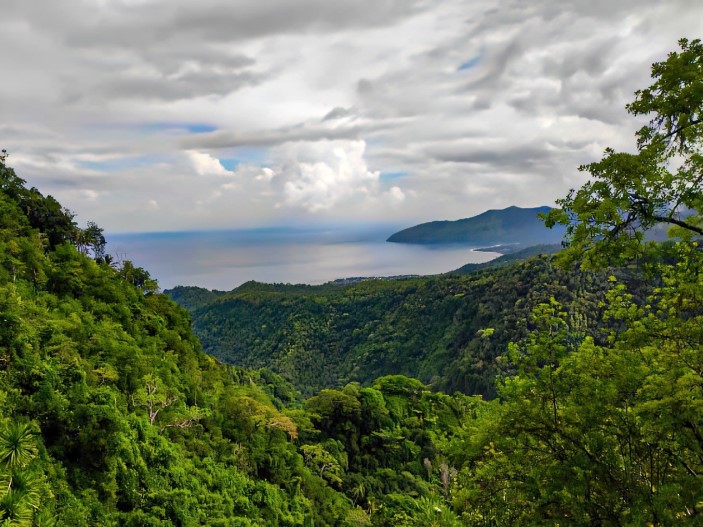
View from the Moya forest highlands. Credit - Dahari.
Thirty conservation agreements signed: A first step towards the restoration of Anjouan’s forests
Thirty farmers in the highlands of the island of Anjouan in the Comoros recently signed historic agreements with the NGO Dahari to conserve and restore forest on their land. This is the culmination of more than two years of intensive work to co-develop a new approach to forest restoration with Anjouan’s farmers, supported by academics from Bangor and Oxford Universities and financed by a Darwin Innovation grant with co-funding from Cartier for Nature.
Anjouan has lost around 80% of its forests since 1995, with 40 of 50 previously permanent rivers now dried up or flowing only intermittently. As a consequence, there is substantial local recognition of the importance of forest conservation.
Naouirou Abdou from the village of Adda was one of the first signatories: “I agreed to make my plot available in accordance with the agreements proposed by Dahari, to conserve the forest and maintain the rivers which are disappearing due to tree cutting. I also send a message to all forest operators: show maturity and contribute to the conservation of the forest, because it is our livelihoods that are in danger.”
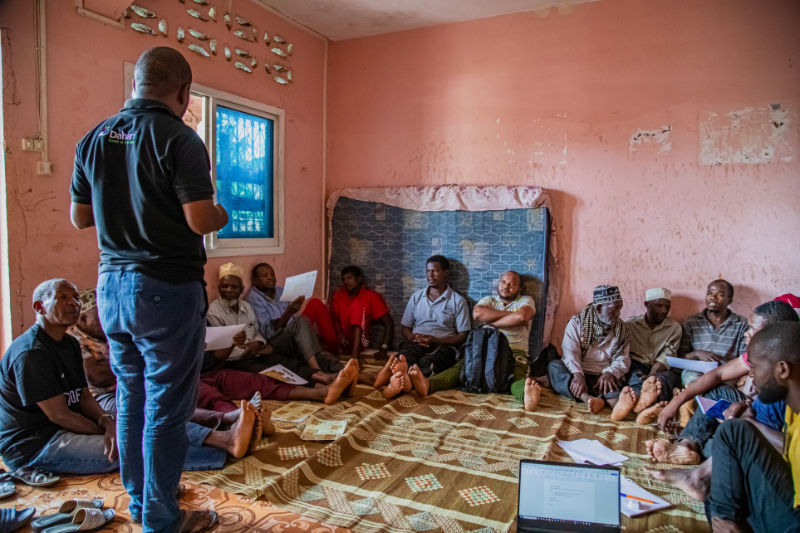
The approach will also support Dahari's work to protect endemic terrestrial biodiversity, including the flagship species, Livingstone’s flying fox (Pteropus livingstonii). This Critically Endangered giant fruit bat is confined to the islands of Anjouan and Mohéli, where habitat loss is its main threat.
The agreements commit farmers to not cut any trees on fields they integrate into the scheme on the forest frontier, and to put the fields into fallow. In exchange, farmers receive cash transfers distributed through the local micro-credit associations every six months. The size of the cash transfer is set according to the size of the area conserved during the initial five-year contract.
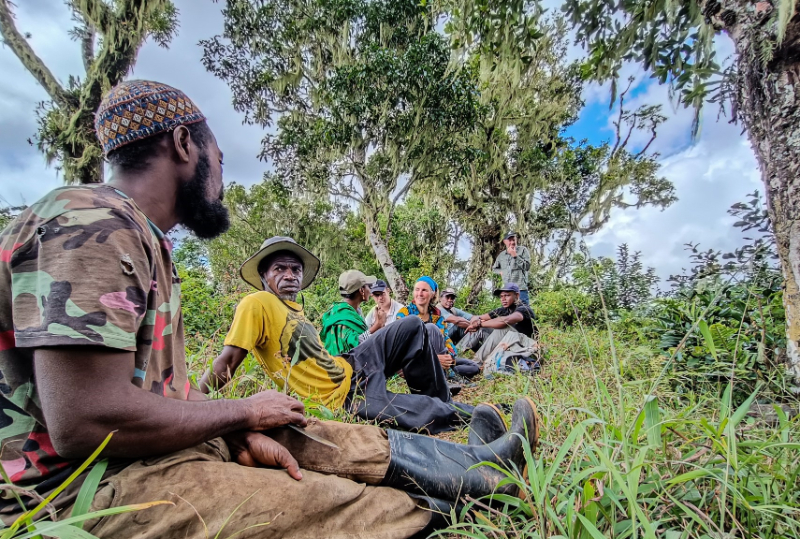
Dahari Co-Director Misbahou Mohamed, in charge of guiding the consultations with farmers and other actors in the communities, shared: “Farmers have always been clear with us that if we could provide them with alternatives, they would be keen to put their highland fields into fallow: it is knee-breaking work climbing Anjouan’s incredibly steep slopes every day. Since 2021 we have consulted at length with over 200 farmers and village leaders on the details of the scheme, and we hope this will be the foundation of its success.”
Most farmers have several small fields dotted around the landscape, so they can leave forest to regenerate in a highland field whilst continuing cultivation further down the slopes. Virtually all of Anjouan’s forested area is already farmed on an individual basis, hence the need for individual agreements to reinforce the implementation of protected areas.
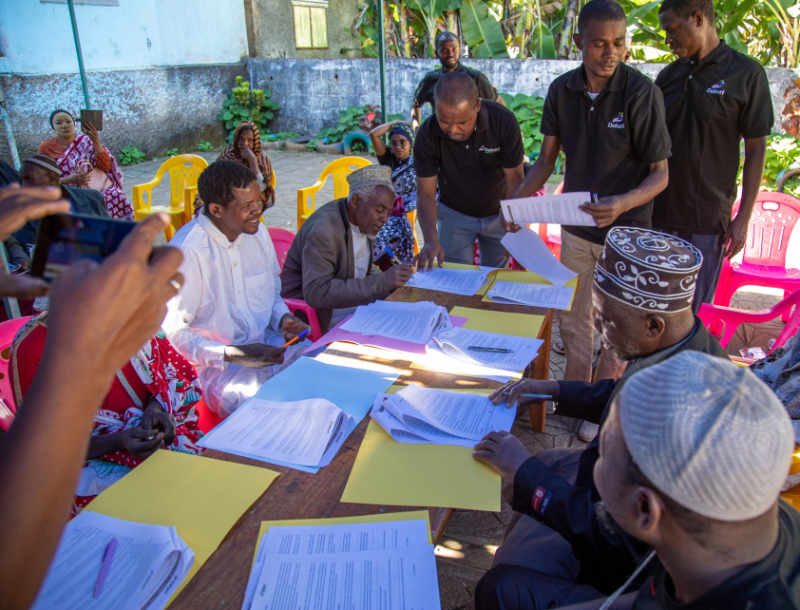
Abdou Mohamed, community mobiliser at Mont Ntringui National Park, adds: “We hope that these agreements will provide the mechanism to ensure that the remaining large forest trees are conserved. With natural regeneration, the forest will return to its former state for the benefit of the wider population.”
Dahari decided to move towards an approach based on individual land management agreements, following a decade of trying community forest management in Anjouan’s highlands. Since the 1980s, these and other forest management efforts have largely failed due to a combination of individual land tenure, weak institutions, and a lack of trust as a key enabling factor for community-based conservation.
Dahari wanted to learn from related initiatives in other parts of the world and conduct high-quality research to ensure the approach was as robust as possible. Consequently, they approached university partners to join their two-year development phase through this project. This included qualitative research locally; working with a local lawyer to explore the tenure implications of the proposed conservation agreements; exchanges with, and learning from the NGO Natura Bolivia and their Watershared schemes based on similar principles, input from an international expert advisory committee of practitioners and academics; and work with a communications expert from the International Union for Conservation of Nature (IUCN) on engaging key community actors and presenting the scheme.
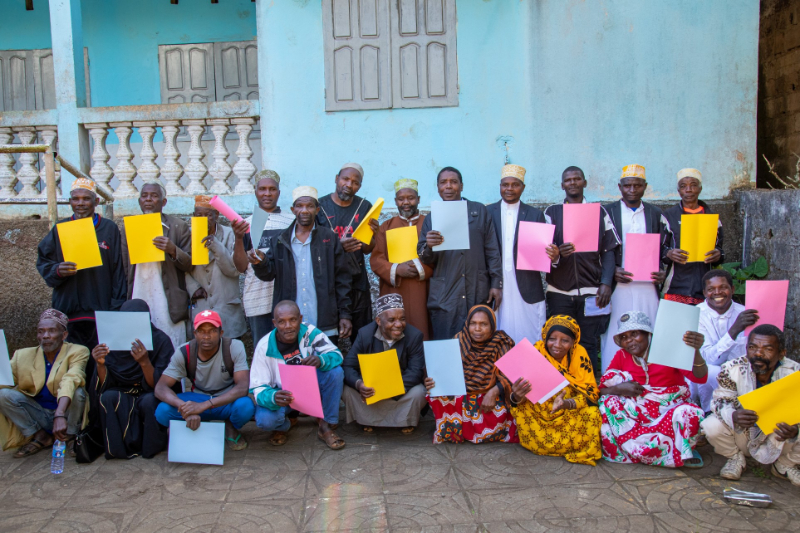
The signing of the 30 pilot conservation agreements is the first step towards the restoration of Anjouan's forests. Phase two will begin in 2025 through roll out to around 300 further farmers which will be implemented, subject to funding, as a Randomised Control Trial (RCT). The RCT, designed during this Darwin Initiative Innovation project, will allow robust evaluation of the impact of the programme. Despite widespread calls for experimental evaluations of conservation programmes where appropriate, including from Defra’s evaluation strategy, they remain rare. Working in collaboration with two other incipient RCT conservation projects, the project team has produced a guide to designing and implementing conservation programmes as RCTs, available as a pre-print.
Over the years to come, Dahari and its partners will be closely monitoring the progress and effectiveness of the conservation agreements scheme, and are excited to understand how the research-informed conservation approaches implemented on Anjouan might benefit people and nature in the Comoros and more widely.
Written by Hugh Doulton, Misbahou Mohamed, Julia Jones, and Owen Lewis. For more information on this Darwin Initiative Innovation project DARNV004, led by Bangor University, please click here.
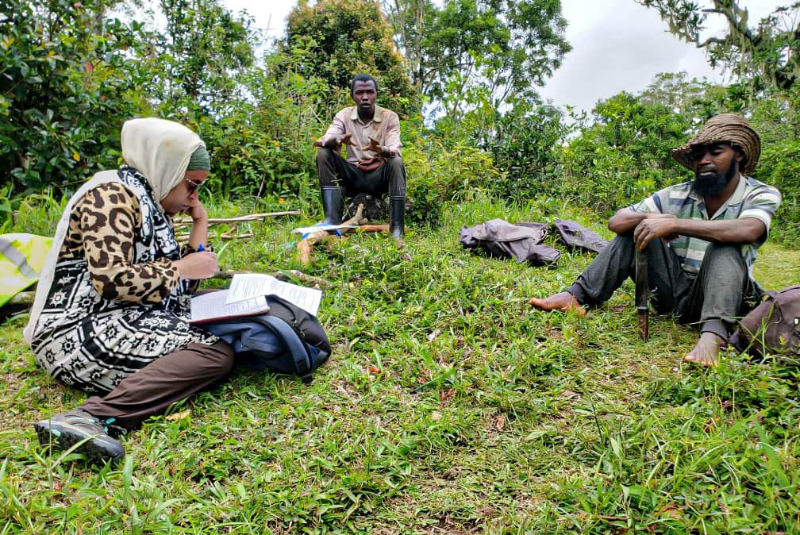
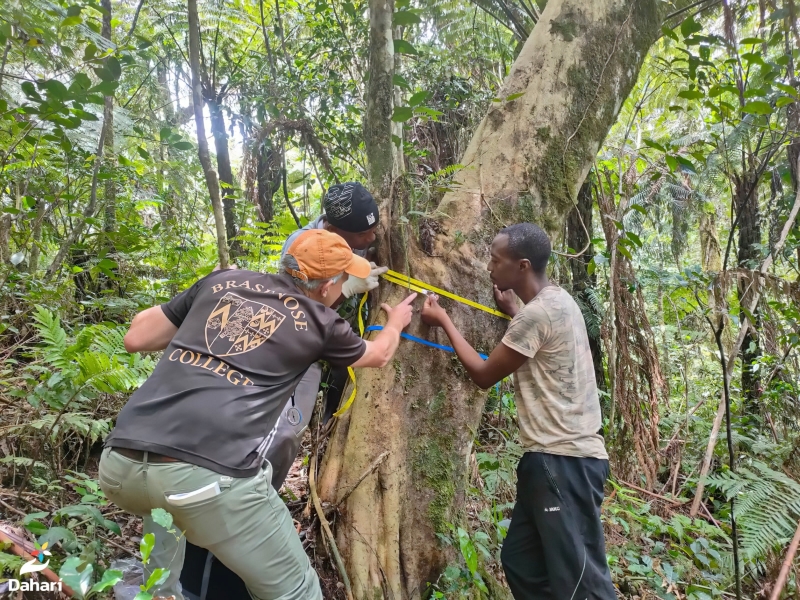
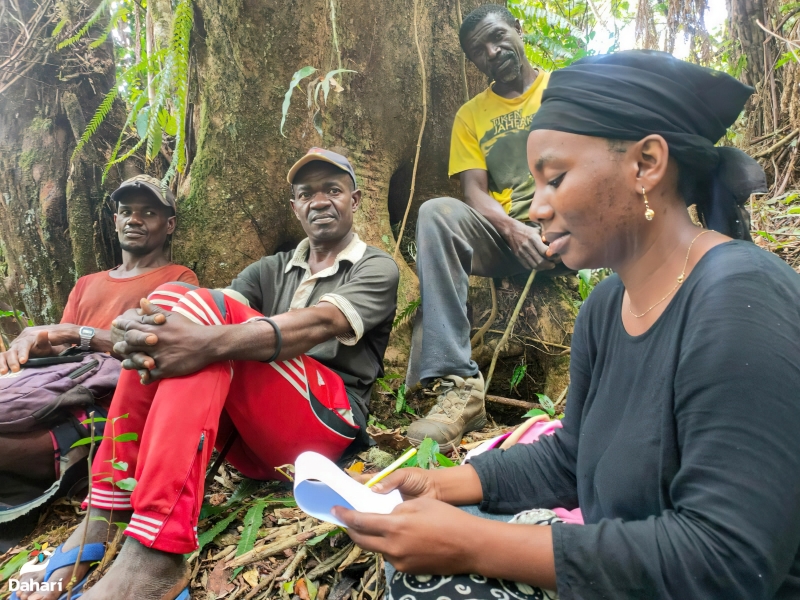
 Back
Back